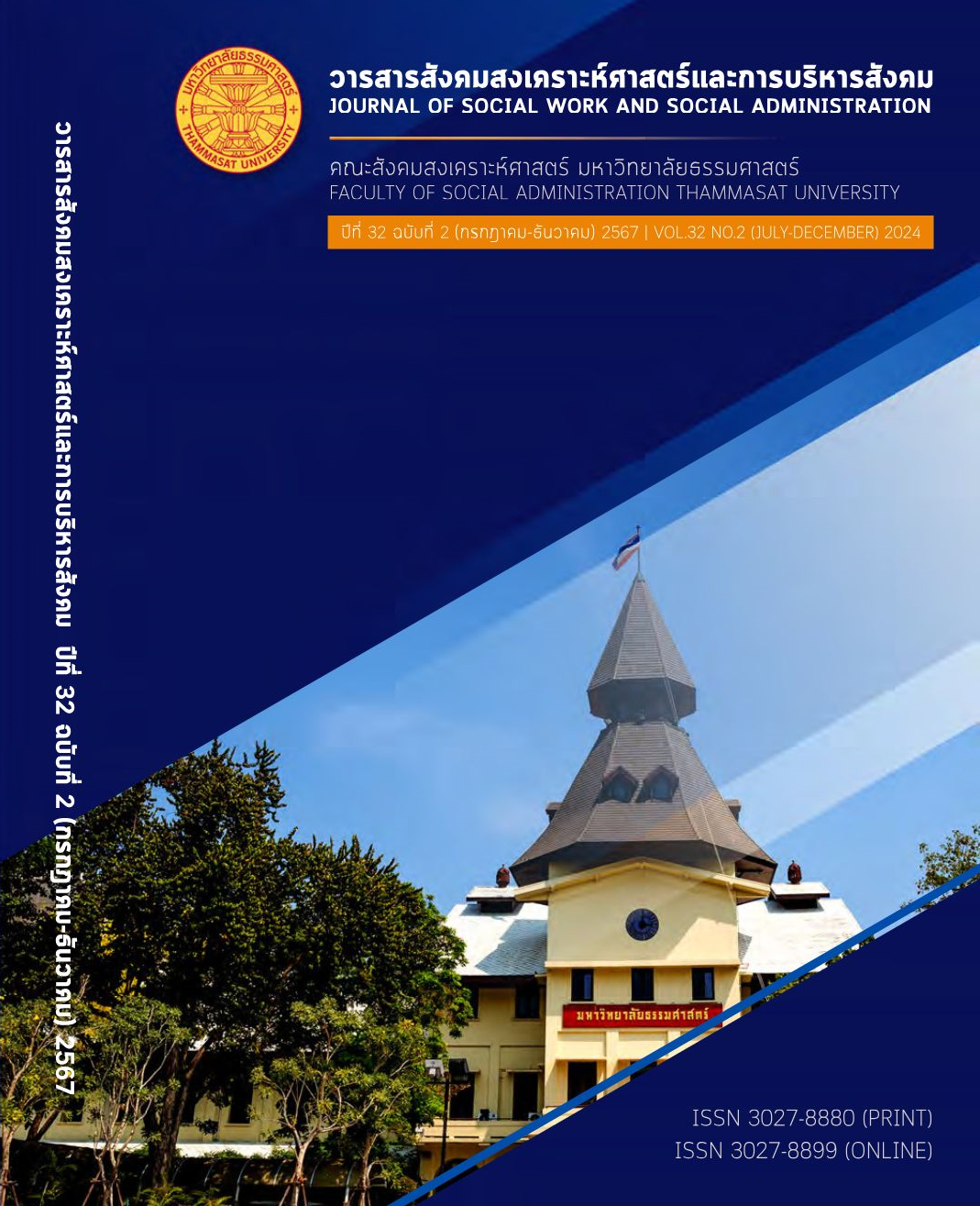Modern Insecurity and The Quest for Life’s Meaning through Dying
Keywords:
Internal insecurity, Self-identity, Meaning in life, DyingAbstract
The phenomenon of internal insecurity amidst an uncertain life context drives individuals to seek internal stability to anchor their lives, raising questions about the meaning of life, both in living and dying. This article presents a theoretical study through a literature review to understand the operations of modern conditions on social life at the individual level, including the values and meanings that reflect identity and selfhood. This understanding aims to foster processes and perspectives that better comprehend life and the problems of existence in modern society. The study reveals that the blurring of values and meanings in modern conditions contributes to internal insecurity. The late modern era compels individuals to uphold their identity as a “self” of the era while simultaneously negotiating and integrating with the surrounding social context through their own way of life. The connection of an individual’s social life through relationships with various entities creates formal bonds, filled with the hope of having pure relationships with the world. The key issues identified are: 1) Changes in shared values within society, 2) Transformations at the individual level, particularly concerning identity and selfhood, and 3) Relationships in the modern context. The problem of losing values and meaning can be addressed through learning about the meaning of life, particularly by fostering awareness through experiences with death. Living life to contemplate and understand the sources of meaning for each individual is a proposal of this work. Both individuals and society must provide space to learn and design the meaning of life, originating from either external or internal sources. Simultaneously, society must also reconsider and be aware of co-creating new shared values and meanings that seek a common understanding connected to the public.
References
โกมาตร จึงเสถียรทรัพย์ (บรรณาธิการ). (2550). วัฒนธรรม ความตายกับวาระสุดท้ายของชีวิต: คู่มือเรียนรู้มิติสังคมของการดูแลผู้ป่วยระยะสุดท้าย. กรุงเทพฯ: สำนักวิจัยสังคมและสุขภาพ.
เชษฐา พวงหัตถ์. (2551). ทฤษฎีสังคมและการทำความเข้าใจสภาวะสมัยใหม่ของแอนโธนี กิ๊ดเดนส์. วารสารร่มพฤกษ์ มหาวิทยาลัยเกริก, 26(1), 2-41.
ดาริน อินทร์เหมือน. (2547). การสร้างสภาวะสมัยใหม่ บทบาทของเหตุผล และการวิพากษ์เหตุผล. ปริญญานิพนธ์มหาบัณฑิต, มหาวิทยาลัยธรรมศาสตร์.
ภาวิกา ศรีรัตนบัลล์. (2561). “บ้าน” สุดท้ายของชีวิต: มุมมองเชิงสังคมวิทยาต่อการบริบาลคุณภาพชีวิตระยะท้าย (พิมพ์ครั้งที่ 3). นนทบุรี: สำนักงานคณะกรรมการสุขภาพแห่งชาติ (สช.).
วริษฐา แซ่เจีย. (2563). ในวันที่รู้สึกไร้ความหมาย: ทำไมมนุษย์เฝ้าตามหาชีวิตและจะรับมือกับความคิดนี้อย่างไร. สืบค้นจาก https://thematter.co/social/philosophy/suffuring-of-existential-crisis/101852.
สุภางค์ จันทวานิช. (2551). ทฤษฎีสังคมวิทยา. กรุงเทพฯ: สำนักพิมพ์แห่งจุฬาลงกรณ์มหาวิทยาลัย.
สำนักงานราชบัณฑิตยสภา. (2542). พจนานุกรมฉบับราชบัณฑิตยสถาน พ.ศ. 2542. กรุงเทพฯ: สำนักงานราชบัณฑิตยสภา. สืบค้นจาก https://www.royin.go.th/dictionary/
อลิซาเบธ คืบเลอร์-รอสส์, และ เดวิด เคสเลอร์. (2548). ชีวิตสอนอะไรบ้าง Life lessons (นุชจรีย์ ชลคุป, ผู้แปล). กรุงเทพฯ: มูลนิธิโกมลคีมทอง. (ต้นฉบับพิมพ์ปี 1972).
Bauman, Z. (1992). Mortality, immortality and other life strategies. California: Stanford University Press.
Baumeister, R. F., Vohs, K. D., Aaker, J. L., & Garbinsky, E. N. (2013). Some key differences between a happy life and a meaningful life. The Journal of Positive Psychology, 8(6), 505-516. Retriveted from https://doi.org/10.1080/17439760.2013.830764
Bocock, R. (1992). The Cultural Formations of Modern Society, in Hall, S., & Gieben, B. (Eds.), Formations of Modernity. Cambridge: Polity Press and the Open University. 229-268.
Critchley, S. (2001). Continental Philosophy: A Very Short Introduction. Oxford: Oxford University Press.
Giddens, A. (1990). The Consequences of Modernity. California: Stanford University Press.
Giddens, A. (1991). Modernity and self-identity: Self and society in the late modern age. California: Stanford University Press.
Hall, S. and Gieben, B. (Eds) (1992). Formations of Modernity. Cambridge: Polity Press and the Open University.
Heaphy, B. (2007). Late modernity and social change: Reconstructing social and personal life. London: Routledge.
Kolb, D. (1986). The critique of pure modernity: Hegel, Heidegger, and after. Chicago: The University of Chicago Press.
Kim, S. (2022). "Max Weber", The Stanford Encyclopedia of Philosophy (Winter 2022 Ed.) Zalta, E. N. & Nodelman, U. (Eds.). Retriveted from https://plato.stanford.edu/archives/win2022/entries/weber/
Kumar, K. (1995). From Post-industrial to Post-modern Society: New Theories of the Contemporary World. Oxford: Wiley-Blackwell.
Nietzsche, F. (2006). Thus Spoke Zarathustra: A Book for All and None. (Del Car, A. & Pippin, R. B. (Ed.). Del Caro, A., Trans.). Cambridge: Cambridge University Press.
Nozick, R. (1989). The Examined Life: Philosophical Meditations. New York: Simon & Schuster Paperbacks.
Pippin, R. B. (1991). Modernism as a Philosophical Problem. Oxford: Wiley-Blackwell.
Schabert, T. (1983). Modernity and History 1: What is Modernity. Retrieved from https://doi.org/10.1177/039219218303112306
Smith, E. E. (2017). The Power of Meaning: Crafting a Life That Matters. New York: Crown Publishers.
Weber, M. (1946). Science as a Vocation. In From Max Weber: Essays in Sociology (Gerth, H. H. & Mills, C. W., Eds & Trans.) New York: Oxford University Press.
Weber, M. (1947). Max Weber, the Theory of Social and Economic Organization. New York: Free Press.
Weber, M. (1978). Economy and Society: An Outline of Interpretive Sociology. California: University of California Press.
Weber, M. (2005). The Protestant Ethic and the Spirit of Capitalism. New York: Routledge.
Downloads
Published
How to Cite
Issue
Section
License
Copyright (c) 2024 Journal of Social Work and Social Administration

This work is licensed under a Creative Commons Attribution-NonCommercial-NoDerivatives 4.0 International License.
The manuscripts published in the Social Work Journal is the copyright of the Social Work Journal, Thammasat University
Any article or opinion appeared in the Social Work Journal will solely be under the responsibility of the author The Faculty of Social Administration, Thammasat University and the editors do not need to reach in agreement or hold any responsibility.



